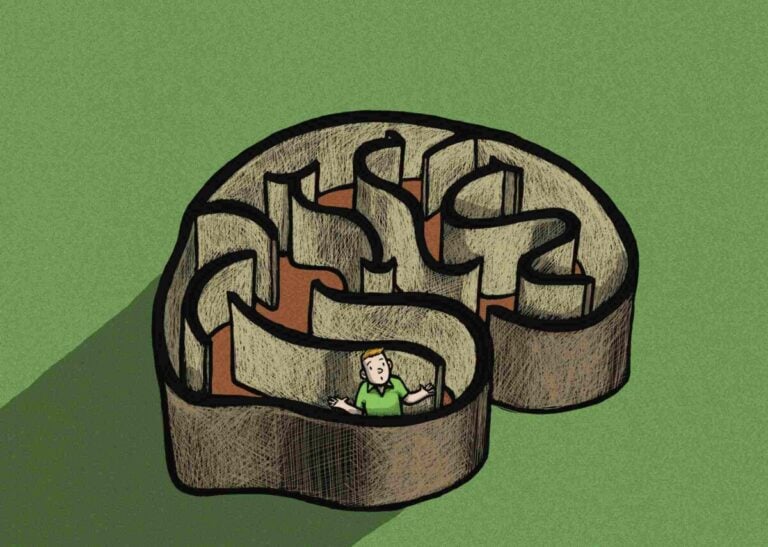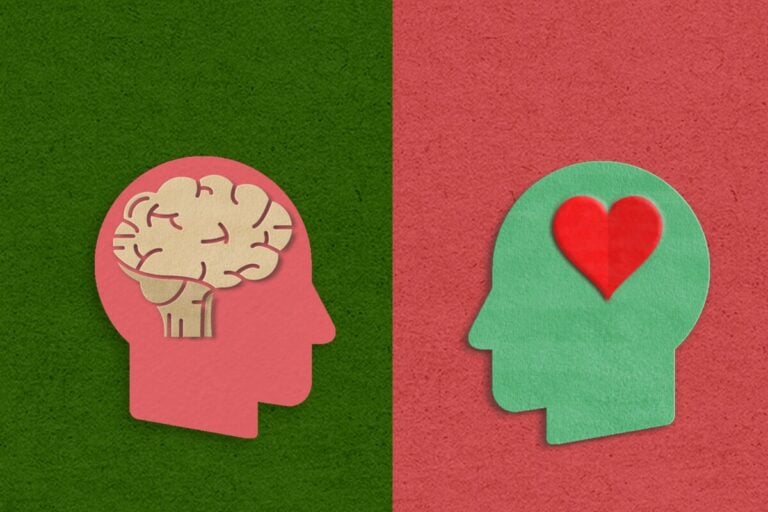Neurotic is a person with overly emotional reactions. Neurotics are not immune from stress and negative events: they experience them very deeply, which is often accompanied by anxiety.
The neurotic is also very self-critical and therefore has low self-esteem. What is a neurotic personality? How to recognize it? Can the problem be cured?
As a result, neurotics most often constantly feel sad and depressed, worry about the future and are afraid of new, unknown situations. This is the embodiment of shyness, isolation, timidity and self-blame.
The neurotic is also very sensitive and delicate and acts out of emotion. Such people, precisely because of excessive sensitivity, often have big problems in social contacts. Immune to the cruelty of the world, they most often withdraw from public life, living in their own secure world, usually confined to the few closest people they trust.
However, the features of a neurotic can completely ruin not only personal, but also professional life. In the face of competition, these “sensitive” people often retreat at the start without getting into a fight. As a result, for example, they miss out on promotions or job changes, which in turn spins a spiral of negative thoughts and self-criticism.
This isolation, timidity and compliance often lead to passivity. Because of their high emotional sensitivity and perception of the world, black neurotics are more prone to mental problems such as neurosis or depression than other personality types.
Neurotics are usually classic introverts, but there is also a combination of neurotic personality and extraverted traits. In this variant, a person is very emotionally experiencing not only negative, but also positive events.
Neurotic extroverts are often considered mentally unstable. This they “owe” to ambivalent behavior and usually to a rather theatrical experience of positive emotions.
Neurotic: the most characteristic personality traits
Neurotic disorders are difficult to classify according to a limited catalog of typical features and behaviors. The individual set of neurotic features of each person is slightly different. In addition, the personality of a neurotic may consist of other people, such as the aforementioned extrovert.

Symptoms and behavior typical of a neurotic:
- high sensitivity and emotionality;
- tendency to deeply experience situations that may not matter to the environment;
- special attention to negative feelings, emotions and events;
- self-blame – even if objectively nothing bad happened;
- introversion, avoiding meeting in large groups;
- passivity and conformism;
- reacting with anxiety and panic in various emergency situations;
- passivity and, as a result, growing frustration and irritability;
- tendency to experience unreasonable fears;
- predisposition to depressive and neurotic disorders.
It is also possible an excessive desire for perfectionism, that is, to prove to the environment that this person is worth something. However, neurotics most often fall into the trap of their perfectionism, which gives rise to further problems – frustration, irritation, demands for even more of themselves, withdrawal and reassurance in negative thinking about themselves – in the end, they can not cope with anything!
Thus, the neurotic never gets satisfaction from his actions, demanding more and more from himself. This is an easy path to self-destruction, depression and neurosis, as well as self-harm. Neurotic people often set themselves unrealistic goals (which they know about) and strive to achieve them at any cost, punishing themselves for all failures.
The perfectionist trap is most often the main cause of a nervous breakdown in neurotics.
Causes of neuroticism
You can be born or become a neurotic in life. Just as there is no catalog of characteristics that describe a neurotic, it is impossible to point out any unambiguous reasons behind this personality. There are usually three reasons:
- Biological;
- Social;
- Psychic.
You may be born with a certain tendency to hypersensitivity and neuroticism – this is due to the characteristics of the nervous system (for example, an overactive sympathetic nervous system).
The social factor can be, for example, the atmosphere in the family home, the influence of peers, pressure from the environment. Neuroticism can develop especially in shy, insecure and withdrawn children. Bullying, humiliation and child abuse – all this can leave a negative imprint on these character traits.
Treatment of neuroticism
Neuroticism is not a mental illness and usually does not require treatment. It does not pose a threat to the neurotic himself and his environment, if it does not make his life very difficult.

However, the feeling of shame and guilt, the constant striving for self-improvement and the wrong attitude towards oneself do not facilitate the decision to help. Moreover, many neurotics do not see their problems at all in the category of those that can be solved with the help of a specialist. They think that “they are like that” and nothing can be done about it.
Support for loved ones
Meanwhile, there are several ways to help a neurotic. The most important thing is the support of the closest people, which consists, first of all, in the denial of wrong thinking: feelings of guilt or underestimation.
It is important for relatives to be open to dialogue with a neurotic, not to underestimate, not to ridicule or belittle the importance of his problems. The neurotic must feel that he is understood, loved and appreciated. You need to talk a lot with him and provide support – then problems, especially those that are spoken about out loud, will become easier to overcome.
Therapy
The second way to organize your thoughts and improve the quality of life of a neurotic is therapy. At the heart of working with a therapist is usually an understanding of the genesis of the problem and an understanding of current disturbances in the perception of the world and people.
The most commonly chosen therapy is Cognitive Behavioral Therapy, which is designed not only to understand the source of the problem, but also to overcome obstacles and learn how to solve everyday problems. Working on yourself under the supervision of a specialist can bring very satisfying results: learning to see your shortcomings as advantages, improving your social life, improving relationships, or gaining the courage to fight for your professional position.
If you feel that your over-sensitivity is creating problems in your life, don’t shut yourself up in shame. At any time, you can visit a doctor (even basic medical care) and talk about your problems and observations. He will no doubt give you advice and point you to other possible ways to proceed.
What is neurotic anxiety?
One of the most painful problems that a neurotic faces on a daily basis is anxiety. The symptoms may be similar to or caused by neurotic anxiety.

A life of fear, insecurity, withdrawal, and frustration leads to isolation. Attempts to overcome fear are usually burdened by the accumulation and chaos of thoughts that interfere with rational thinking. This, in turn, can cause you to fall into an even larger circle of negative thoughts and become even more isolated.
Neuroticism may arise or be due to the direct cause of anxiety. In extreme situations, anxiety can completely dominate and control life, preventing normal functioning.
Neurotic child
Children are more sensitive than adults. Before they gain confidence and become aware of their abilities, they almost always go through a stage of insecurity, aloofness, and some degree of conformity with their peers.
However, even if the child is sensitive, shy and withdrawn by nature, it is good to constantly monitor whether these traits are deteriorating too much.
The time when children develop their personalities can be crucial for their entire future. Therefore, if your child’s behavior is disturbed by excessive withdrawal, excessive sensitivity, tearfulness, and passivity, take action.
Even one visit to a child psychologist can dispel doubts (and it is better to be safe than to ignore the problem) or open the way for further diagnosis in case of suspicion of any violations.
It must be admitted that children do not have a developed self-awareness as adults do, but understanding the problem of a neurotic personality at an early stage can save them from problems for this reason in the future.

















